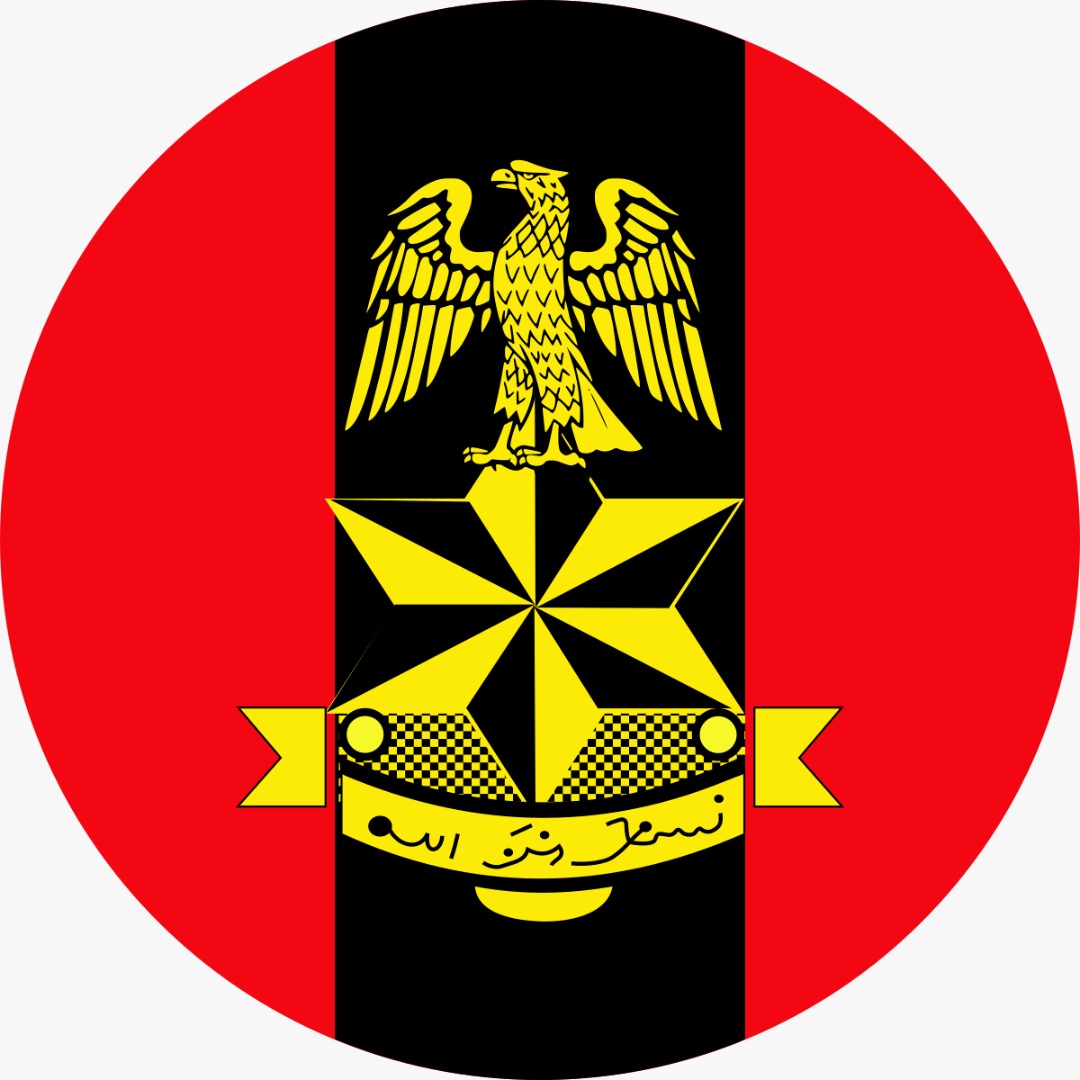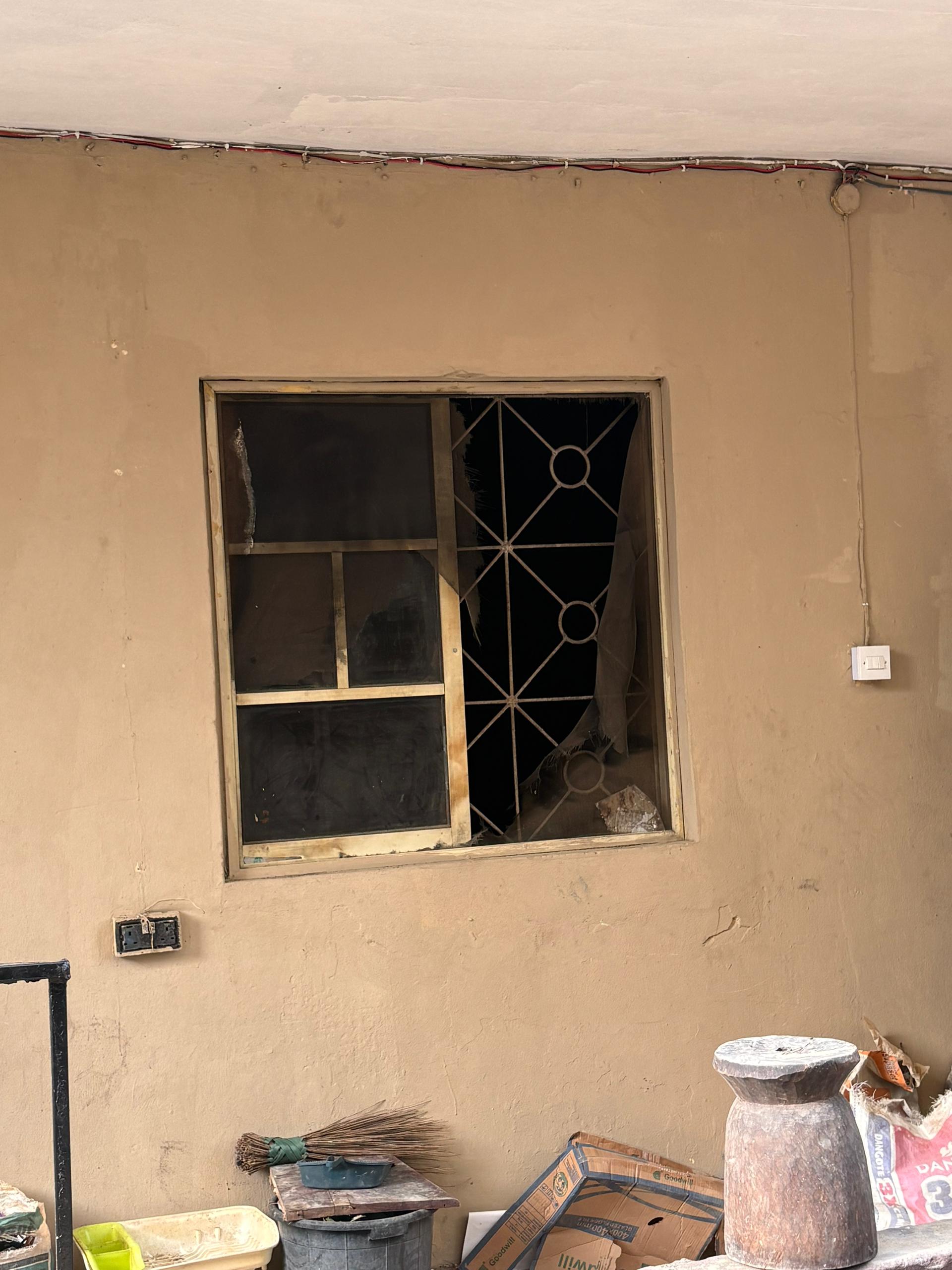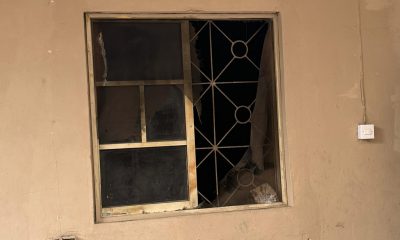society
Sagir Musa, Army Spokesman per excellence, promoted Brigadier General

The Chief of Army Staff, Lieutenant Tukur Buratai has congratulated newly promoted Nigerian Army Spokesman, Sagir Musa, who was among the officers promoted from Colonel to Brigadier General on Wednesday.
In a statement signed by the Army spokesman, now Brigadier General Sagir Musa,that the Army Council, on Wednesday the 25th of November 2020, approved the promotion of senior officers to the next ranks of Major General and Brigadier General respectively.
A total of 39 Brigadier Generals are lucky to be meritoriously promoted to Major General, while 97 Colonels have also been elevated to Brigadier General accordingly.
Those lucky to be promoted to Major General are – Brigadier General O O Oluyede, Acting Commander Sector 2 Operation LAFIYA DOLE, Damaturu, Brigadier General BR Sinjen Acting Director Operations, Army Headquarters Department of Training and Operations, Brigadier General AK Ibrahim Acting General Officer Commanding 7 Division Maiduguri, Brigadier General OR Aiyenigba Head Operations Monitoring Team Army Headquarters Abuja, Brigadier General SG Mohammed Commander 23 Brigade Yola, Brigadier General UU Bassey of the Army Resource Centre Abuja, Brigadier General KN Garba Office of the Chief Army Staff, Army Headquarters Abuja, Brigadier General A Bande Acting General Officer Commanding 8 Division Sokoto,
Brigadier General CV Eze Nigerian Army Special Projects, Office of the Chief of Army Staff,
Brigadier General KI Yusuf Acting Chief of Accounts and Budget of the Nigerian Army, Brigadier General SI Igbinowanhia Acting Commander Sector 3 Operation LAFIYA DOLE, Monguno.
Others are – Brigadier General H Ahmed Acting Provost Marshal (Army), Brigadier General AS Ndalolo Nigerian High Commission London, Brigadier General AA Fayemiwo Armed Forces Command and Staff College Jaji, Brigadier General IM Jallo Commander 63 Brigade Asaba, Brigadier General E Akerejola of Army Headquarters Department of Army Logistics, Brigadier General AJ Fagge Ministry of Defence Abuja, Brigadier General JO Ochai Nigerian Army Resource Centre Abuja, Brigadier General IS Ali Department of Defence Logistics Defence Headquarters Abuja, Brigadier General GU Chibuisi Headquarters 19 Brigade Baga, Brigadier General S Dahiru of Martin Luther Agwai International Leadership and Peace Keeping Centre Jaji, Brigadier General OO Soyele Defence Headquarters Abuja, Brigadier General ML Augie Nigerian Defence Academy Kaduna, Brigadier General PI Eze Headquarters Theatre Command Operation LAFIYA DOLE Maiduguri, Brigadier General BH Mohammed Commandant Nigerian Military School Zaria, Brigadier General EAP
Undiandeye Defence Intelligence Agency Abuja, Brigadier General MK Yunusa of Command Finance Office Apapa Lagos, Brigadier General AM Dauda National Defence College Abuja, Brigadier General JO Iwara Army Headquarters Department of Army Standards and Evaluation, Brigadier General MG Kangye, Brigadier General GB Audu Defence Headquarters, Brigadier General TT Numbere Post Housing Development Limited Abuja, Brigadier General R Abubakar of Defence Headquarters Abuja, Brigadier General NC Ugbo Nigerian Army School of Signals Apapa Lagos, Brigadier General AI Taiwo 81 Military Intelligence Brigade Lagos, Brigadier General BH Tsoho Nigerian Army College of Education Ilorin, Brigadier General HG Tafida Nigerian Army School of Electrical and Mechanical Engineering Makurdi and Brigadier LM Zakari Nigerian Army College of Environmental Science and Technology Makurdi and Brigadier General BU Yahaiya Nigerian Defence Section Cairo.
Those Promoted to Brigadier General are –
Colonels BA Muhammadu of Defence Intelligence Agency Abuja, Colonel AA Egbejule Army Headquarters Department of Army Transformation and Innovation, UM Alkali of Army War College Nigeria, DC Bako (promoted Posthumously), AK Lawal Sector 3 Operation LAFIYA DOLE Monguno, ID Oloyede Depot Nigerian Army Zaria, AM Usman Army Headquarters Garrison Abuja, SM Uba of 401 Special Forces Command, Cross kauwa, AGL Haruna Commander 7 Division Garrison Maiduguri, AIM Lapai of 302 Artillery Regiment (General Support) Onitsha, OD Williams 244 Reconnaissance Battalion Saki, IA Ajose Training and Doctrine Command, Minna, OA Awolo Army Headquarters Department of Army Training and Operations, AM Grema 402 Special Forces Brigade Ngamdu, EA Orakwe Headquarters 5 Brigade Gubio, AA Idris of 1 Military Intelligence Brigade, Kaduna.
Also elavated to Brigadier General include – UG Yusuf of Army Headquarters Abuja, Department of Army Standards and Evaluation, MHB Manu Headquarters Infantry Corps Centre Jaji, D Dieke of Defence Industries Corporation of Nigeria Kaduna, JK Feboke Defence Headquarters Abuja, OS Obot Headquarters 404 Engineer Brigade Doma, Nasarawa, S
Musa Army Headquarters, Directorate of Army Public Relations, UG Simon Headquarters 33 Brigade Bauchi, JD Bulus Headquarters Command Finance Office Lagos, OB Davies Defence Headquarters, MA Sadiq Headquarters Operation LAFIYA DOLE Maiduguri, EA Obona Army Headquarters Garrison Finance, H Sarkin Fulani Army Headquarters Garrison Supply and Transport, OSA Fashina Sector 2 Military Intelligence Brigade Operation LAFIYA DOLE and Col E Egbe 303 Artillery Regiment (General Support) Jos.
Others include – IEE Akpaumontia Nigerian Defence Section Harare, IU Akpan Army War College Nigeria, MK Ibrahim Army Headquarters Department of Army Standards and Evaluation, Abuja, NUC Ogili 37 Brigade Garrison Maiduguri, A Rabiu Directorate of Army Recruitment Resettlement and Reserve Abuja, Col MCE Ejike of Sector 3 Operation DELTA SAFE Okrika, DK Zirkushu Headquarters 1 Brigade Gusau and OT Ojuoloruntaiye Defence Headquarters Communications, SA Emmanuel Headquarters 57 Signal Brigade Maiduguri among others.
The Chief of Army Staff, Lieutenant General Tukur Yusufu Buratai congratulates all the promoted officers and their families, and urged them to redouble their efforts to justify the confidence reposed in them..
Sagir Musa who hails from Katsina State was until the appointment acting Director of Army Public Relations was the spokesman of 82 Division, Enugu.
He replaced Brigadier General Sani Usman, who voluntarily retired from the service
society
Stop Means Stop”: Legal Experts Warn Ignoring ‘Stop’ During Intimate Acts Can Be Criminally Punishable

“Stop Means Stop”: Legal Experts Warn Ignoring ‘Stop’ During Intimate Acts Can Be Criminally Punishable
By George Omagbemi Sylvester | Published by SaharaWeeklyNG
“Grounded in international law and consent principles, legal authorities stress that continuing sexual activity after a partner withdraws consent may constitute sexual assault and lead to imprisonment.”
A growing body of legal interpretation and expert opinion reaffirm that consent in intimate encounters is not a one-off event but an ongoing requirement; withdrawn at any time by either participant. Legal practitioners and rights advocates are increasingly warning that if one partner clearly says “stop” during sexual activity and the other continues, this conduct can constitute a criminal offence with significant penalties, including imprisonment.
Consent must be “a voluntary agreement to engage in the sexual activity in question,” and crucially can be revoked at any stage. Once a partner expresses withdrawal of consent (by words like “stop” or by unmistakable conduct) the other party is legally obligated to cease all activity immediately. Failure to respect this is widely recognised in multiple legal jurisdictions as sexual assault or rape.
Professor Deborah Rhode, a prominent authority on legal ethics, has stated: “Respect for autonomy and bodily integrity lies at the core of consent law. Ignoring a partner’s withdrawal of consent undermines basic personal freedoms and is treated as a serious offence in criminal law.”
According to experts, this legal principle is not limited to strangers but applies equally to long-term partners and spouses. The Criminal Code in many countries explicitly rejects implied or blanket consent based on relationship status.
Human rights lawyer Amal Clooney has similarly emphasised that clear communication and mutual agreement are essential, and that “once consent is withdrawn, any continued sexual activity crosses the line into criminal conduct.”
This means that in places where consent law is well-established, ignoring an explicit “stop” can lead to charges of sexual assault, with courts interpreting such conduct as a violation of an individual’s autonomy and dignity.
The issue has gained media and legal attention in recent years across numerous jurisdictions (including Canada, parts of Europe, and reform discussions in U.S. states) as courts and legislatures clarify that sexual consent is continuous and revocable at any time. Although no globally consolidated database exists of individual cases tied specifically to a news report on this warning, reputable legal frameworks consistently reinforce that continuing after “stop” is unlawful.
The subject engages legal scholars, criminal law practitioners, human rights experts, and statutory bodies advocating sexual violence prevention. Law enforcement agencies and prosecutors may pursue charges when clear evidence shows that consent was withdrawn and ignored.
In practice, consent frameworks require that the person initiating or continuing sexual activity take reasonable steps to ensure ongoing affirmation of willingness. Silence, passive behaviour, or failure to stop when asked cannot substitute for ongoing consent.
In summary, the legal maxim is clear: verbal or unambiguous withdrawal of consent must be respected. Ignoring it shifts the encounter from consensual to criminal, potentially resulting in serious legal consequences including imprisonment.
society
Lagos Family Property Dispute Turns Violent After Death of Omotayo Ojo

Lagos Family Property Dispute Turns Violent After Death of Chief Omotayo Ojo
By Ifeoma Ikem
A festering family dispute over property has escalated into a series of violent attacks in Lagos, leaving residents of a contested apartment in fear for their safety.
Mrs. Omotayo-Ojo-Alolagbe (Nee Omotayo-Ojo) the third child and first daughter of the late Omotayo Ojo, has alleged repeated assaults and destruction of property by her siblings from her father’s other marriages.
According to her account, hostility against her began while her father was still alive, allegedly fueled by the affection and support he showed her. She claimed that tensions worsened after his death in 2019.
Mrs. Alolagbe stated that her late father had given her a particular apartment during his lifetime, assuring her she would not suffer hardship, especially after her husband left the marriage. She said the property became her primary source of livelihood and shelter.
However, she alleged that her siblings had sold off several other family properties and were determined to dispossess her of the apartment allocated to her by their father.
The dispute reportedly turned violent on Nov. 15, 2025, when unknown persons allegedly attacked the building. She said the incident prompted her to petition the Chief Judge of Lagos State and the Commissioner of Police.
Despite the pending legal proceedings, she alleged that another attack occurred on Jan. 21, 2026. During that incident, parts of the building were vandalised, including the walkway and the main gate, which was reportedly removed.
A third attack was said to have taken place on Feb.18, 2026, during which the roof, gates, and sections of the walkway were allegedly dismantled. Residents were reportedly assaulted, and some were allegedly forced to part with money under duress.
Tenants in the apartment complex are said to be living in fear amid the repeated invasions, expressing concern over their safety and uncertainty about further violence.
Mrs. Alolagbe alleged that the attacks were led by a man identified as Mr. Alliu, popularly known as aka “Champion,” whom she described as a political thug. She claimed he arrived with a group of about 50 men, allegedly brandishing weapons and breaking bottles to intimidate residents.
She further alleged that the group boasted of connections with senior police officers, politicians in Lagos State, and even the presidency, claiming they were untouchable.
According to her, some arrests were initially made following the incidents, but the suspects were later released. She expressed concern that the alleged perpetrators continue to threaten her, making it difficult for her to move freely.
She also disclosed that during a meeting on Feb. 23, 2026, an Area Commander reportedly told her that little could be done because the matter was already before a court of law.
The development has raised concerns about the enforcement of law and order in civil disputes that degenerate into violence, particularly when court cases are pending.
As tensions persist, residents and observers are calling on relevant authorities to ensure the safety of lives and properties ,while allowing the courts to determine ownership and bring lasting resolution to the dispute.
society
Adron Homes Introduces Special Ramadan Offer with Discounts and Gift Rewards

Adron Homes Introduces Special Ramadan Offer with Discounts and Gift Rewards
As the holy month of Ramadan inspires reflection, sacrifice, and generosity, Adron Homes and Properties Limited has unveiled its special Ramadan Promo, encouraging families, investors, and aspiring homeowners to move beyond seasonal gestures and embrace property ownership as a lasting investment in their future.
The company stated that the Ramadan campaign, running from January 20th to April 6th, 2026, is designed to help Nigerians build long-term value and stability through accessible real estate opportunities. The initiative offers generous discounts, flexible payment structures, and meaningful Ramadan-themed gifts across its estates and housing projects nationwide.
Under the promo structure, clients enjoy a 30% discount on land purchases alongside a convenient 36-month flexible payment plan, making ownership more affordable and stress-free.
In the spirit of the season, the company has also attached thoughtful rewards to qualifying payments. Clients who pay ₦200,000 receive a Provision Hamper to support their household during the fasting period, while those who pay ₦400,000 receive an Automated Prayer Mat to enhance their spiritual experience throughout Ramadan.
According to the company, the Ramadan Promo reflects its commitment to aligning lifestyle, faith, and financial growth, enabling Nigerians at home and in the diaspora to secure appreciating assets while observing a season centered on discipline and forward planning.
Reiterating its dedication to secure land titles, prime locations, and affordable pricing, Adron Homes urged prospective buyers to take advantage of the limited-time Ramadan campaign to build a future grounded in stability, prosperity, and generational wealth.
This promo covers estates located in Lagos, Shimawa, Sagamu, Atan–Ota, Papalanto, Abeokuta, Ibadan, Osun, Ekiti, Abuja, Nasarawa, and Niger states.
As Ramadan calls for purposeful living and wise decisions, Adron Homes is redefining the season, transforming reflection into investment and faith into a lasting legacy.
-

 celebrity radar - gossips6 months ago
celebrity radar - gossips6 months agoWhy Babangida’s Hilltop Home Became Nigeria’s Political “Mecca”
-

 society5 months ago
society5 months agoReligion: Africa’s Oldest Weapon of Enslavement and the Forgotten Truth
-

 society6 months ago
society6 months agoPower is a Loan, Not a Possession: The Sacred Duty of Planting People
-

 news7 months ago
news7 months agoTHE APPOINTMENT OF WASIU AYINDE BY THE FEDERAL GOVERNMENT AS AN AMBASSADOR SOUNDS EMBARRASSING








